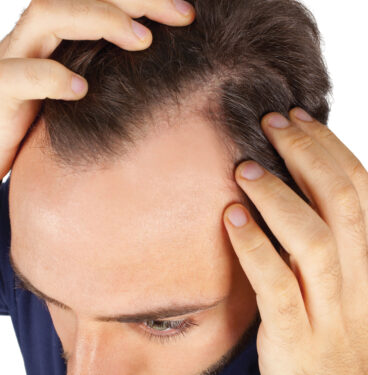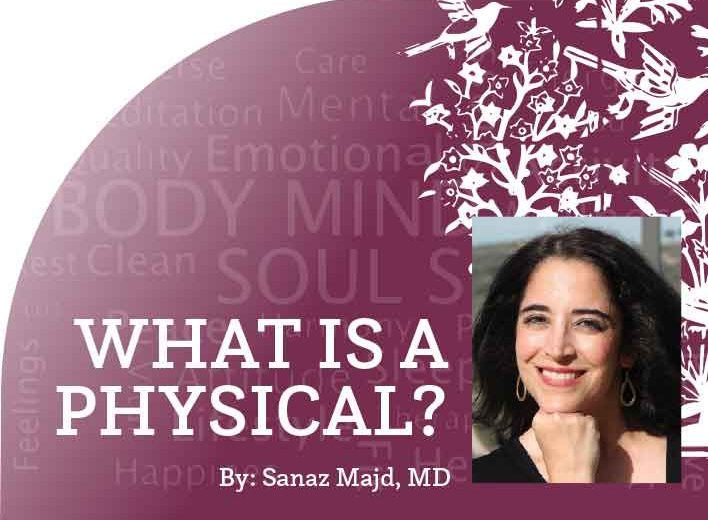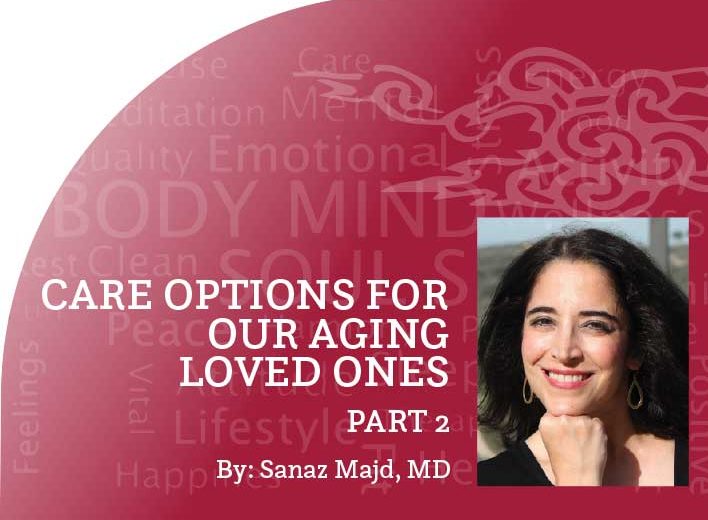By Sanaz Majd, MD
The Will Smith/Chris Rock Oscars debacle has recently created a lot of buzz around the topic of alopecia, the general medical term referring to hair loss. Actor Will Smith’s wife, Jada Pinkett-Smith, reportedly suffers from a subtype of alopecia, the subject of Chris Rock’s controversial jokes for the evening which culminated in a shocking physical confrontation initiated by Will Smith.

So what is alopecia? Well, here is a review of some of the top causes:
Alopecia Areata:
Alopecia areata, although not a very common subtype of alopecia, is the specific type that has affected Jada Pinkett-Smith. It is a condition that causes a rather sudden loss of specific, distinct, round/oval patches of hair on the scalp. It is an autoimmune disorder, which means the body erroneously regards parts of itself as “foreign” (in this case, the hair follicles) and mounts an immune response which can sometimes also cause hair loss on other parts of the body, such as eyelashes and eyebrows. However, about half of people with alopecia areata will regrow their hair within one year. Overall, it is a cosmetic condition that is not life-threatening but can certainly cause great emotional distress and a psychosocial impact.
Besides alopecia areata, however, there are numerous more common causes of hair loss. Whereas alopecia areata tends to create distinct, round losses of hair on the scalp, other types of hair loss tend to be less distinct, more diffuse, and often more gradual. Here are some of the culprits:
Alopecia Androgenetica:
By far the most common cause of hair loss in both men and women, this subtype of hair loss has not only a genetic component (hence, the term “genetic”), but also a hormonal one (hence, the term “androgen,” which refers to hormones). Again, the pattern is often a diffuse thinning in women and a “male-patterned” loss in men that seems to worsen with age. Family members are often also affected, most especially one or more parents and the genes are passed down from one generation to the next.
Thyroid Disorder:
Hypothyroidism can also cause diffuse hair thinning. There is also a genetic component, such as Hashimoto’s, also an autoimmune condition but one in which the body regards the thyroid gland as “foreign” and mounts an immune attack. As a result, the thyroid gland shuts down the production of thyroid hormone and slows down our metabolic processes. It can also cause constipation, cold intolerance, depression, weight gain, fatigue, and hair loss. Everything slows down.
Chronic Iron Deficiency:
This is more of a concern for menstruating women who tend to bleed more — either more frequently, with greater duration, or simply with increased flow. Strict vegetarians who lack iron in their diet are also at risk for this. However, all iron-deficiency anemia requires close observation and follow-up with a doctor, most especially in those aged 40 and above, as microscopic loss of blood in the stool is a more serious concern.
Medications:
Certain medications can also cause hair loss, such as chronic corticosteroids used to treat various autoimmune disorders (such as rheumatoid arthritis and lupus), hormonal contraceptives, hormone replacement therapy, lithium, and amiodarone (an anti-arrhythmic), anticonvulsants, and chemotherapy. It is typically reversible, however, as discontinuation of the medication does often result in hair regrowth.
Stress:
Experiencing a traumatic or highly stressful life event causes hair loss about 3-6 months down the line. However, it is also reversible and the hair will regrow once the stressor has been resolved.
Traction:
Interestingly, chronic traction on the hair follicles can also cause hair thinning. This is most apparent in women who tend to wear their hair up in a ponytail or bun consistently. If the hair loss tends to be more apparent towards the front of the scalp, try wearing your hair down for a change.
Polycystic Ovarian Syndrome (PCOS):
PCOS is quite common as reportedly 1 out of 10 women tend to suffer from it and many go undiagnosed. It is also very common within the Iranian population. PCOS is a hormonal imbalance that causes irregular menstrual periods, acne, hirsutism (excessive hair growth on the face or body), easy weight gain, difficulty losing weight, and diffuse scalp hair loss.
Pregnancy:
Interestingly, women tend to experience an increase in hair growth during pregnancy. However, after giving birth there is a sudden demise in various hormone levels which can also cause sudden hair loss. Fortunately, most women gradually do return back to their pre-pregnancy hair status through time, however.
There are numerous other causes of alopecia, such as syphilis (a sexually transmitted infection), lupus (another autoimmune disorder), and tinea capitis (a fungus infection of the scalp), however they are much less common. An initial visit to your doctor can quickly rule out the more common causes listed in this article, typically with a blood test. But if a cause is not easily discernible, a referral to a dermatologist is another option.
Sanaz Majd, MD is a board-certified Family Medicine physician and host of the Majd MD YouTube channel (@Majd MD), reviewing the latest medical topics and headlines. You can also follow her on Facebook or Instagram: @SMajdMD.


















